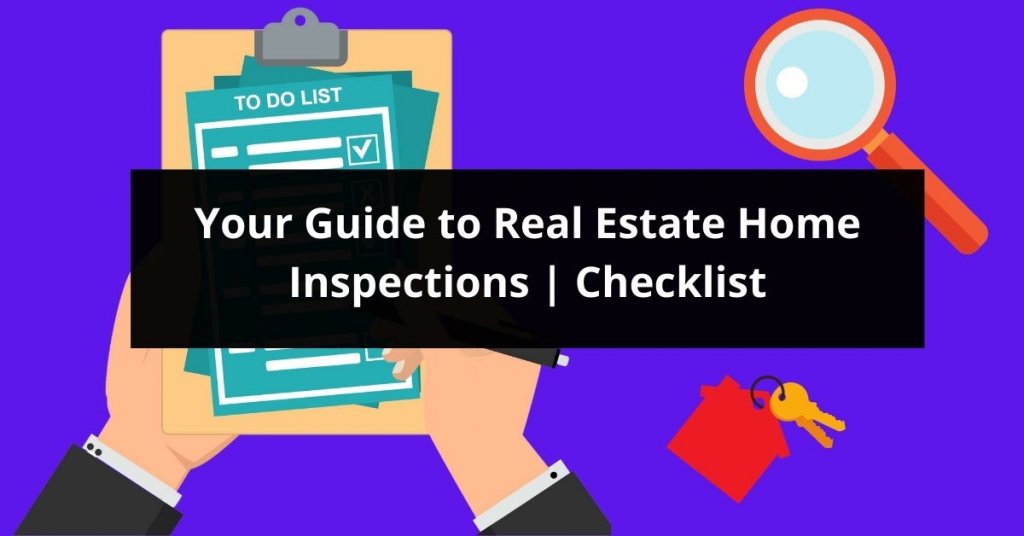A home inspection can be a pivotal part of your home buying or selling experience. It’s this very moment when the home’s health is confirmed, issues are revealed, and when renegotiations are common. No matter what side of the closing table you’re sitting on, it can be both an exciting and nerve-wracking part of the process.
It’s essential to familiarize yourself with the process in any case. That way, you know what a home inspector is looking at, what issues they may find, and what steps they determine must be taken. That’s what this guide is for. We’re going to take a look at home inspections so that you know exactly what to expect and can be ready for a quick and hassle-free closing.
What should a home inspection cost?
The average price of a home inspection is around $400. However, that number is based on homes that are 1,500 square feet or less.
Inspectors will generally start there and increase the price along with the size of the home. That might be $50 for every additional 500 square feet above 1,500, but it ultimately comes down to the inspector you hire.
Keep in mind that pricing is typically a lot more complicated. Features of the home, its age, and so on can all factor into what an inspector charges.
You also cannot forget any additional inspection expenses that the home inspector suggests. Home Inspectors view the general condition and are not qualified to assess mold, asbestos, or termites. Therefore, they will likely recommend that you bring in other specialists trained to evaluate those situations.
Buyers usually have the option to hire the inspector of their choice. We suggest that you do the research and find what works best for you. As with title companies, this allows you to save some money in the home buying process.
What can fail a home inspection but should not be a deal-breaker?
There are numerous items that can fail a home inspection and not be a deal breaker like outdated appliances, wood flooring that is slightly warped or a few electric outlets that need changed. They’ll annoy the buyer but you just need to adjust your prices to cover the repair costs and the deal will still likely come through. Other items like foundation, HVAC, infestations or roofing issues could be a deal breaker for a home buyer, but not for a real estate investor.
It’s scary any time something fails to pass inspection. But again, just because something fails it does not mean it is a deal breaker. You might have to do a simple repair or negotiate the price.
It’s worth noting that many things may fail because they aren’t up to date or are simply minor problems. Something like the lack of a frost-proof hose bib, missing trim, and a screen door not closing properly will be noted. It’s good to pay attention to these issues because you might be able to convince the seller to make some updates before closing.
How Long Does a Home Inspection Take?
The average home inspection takes around 2.5 hours to complete. That’s because the inspector goes over every last detail to provide an accurate assessment of the home’s condition.
The home’s size and features will factor into the length of the process and what the inspector makes a note of. While the chances are slim that they’ll write about every last nail in the home, you can expect explicit details about switches, sockets, walls, and so on.
You want to make sure you read through all of those details and discuss them with the agents and anyone else involved in the transaction.
Home Inspection Checklist
Although each home inspector will have their own items they look for here, here is a home inspection checklist to help you prepare for what standard home inspectors will normally look for:
- Appliances (typically used to test electrical and plumbing systems and safety, not features or functions)
- Attic space
- Basement/crawl space
- Doors and windows
- Electrical panel, switches, and power outlets
- Exterior paint
- Foundation
- Garage
- Insulation
- Landscaping
- Plumbing fixtures, faucets, and water heater
- Porches, balconies, and railings
- Rain gutters and downspouts
- Roof, shingles
- Smoke detectors, radiation detectors, exhaust ventilation
- Stairs, steps, and railings
- HVAC system, heating components, and ductwork
- Sidewalks and driveways
- Walls, ceilings, and floors
Home inspections are not as scary as they seem. Sometimes it works in your favor and can close the deal faster, other times they result in having to lower your selling price. Just remember that every house has issues. Unless it is something like major electrical work, don’t let a couple fails stop you from selling your house or buying the home of your dreams.

